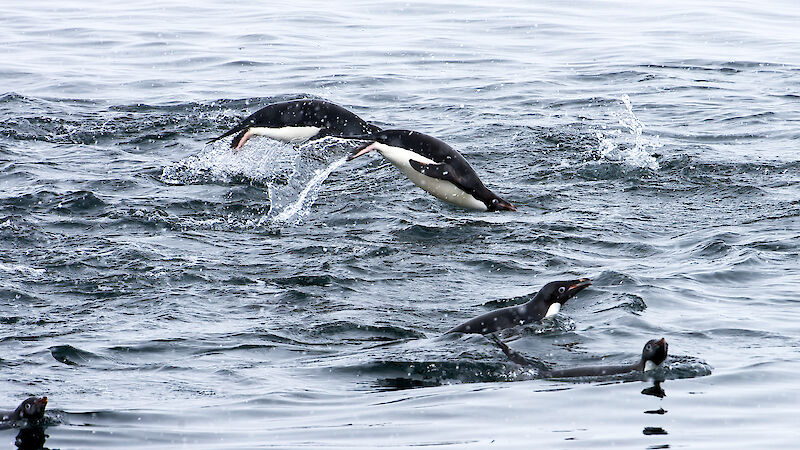Australia is disappointed its proposal to establish one of the world’s largest Marine Protected Areas (MPAs) in East Antarctica was not adopted at this year’s Commission for the Conservation of Antarctic Marine Living Resources (CCAMLR) in Hobart, but remains committed to pursuing the initiative.
Australia has welcomed CCAMLR’s decision to convene a Special Meeting of the Commission and its Science Committee in mid-2013 to push for agreement to the MPAs. This is only the second time in CCAMLR’s history that such a Special Meeting has been called.
Australia, France and European Union jointly proposed to the 25 Member Commission the establishment of a network of seven MPAs in the East Antarctic region with a total area of 1.9 million square kilometres.
The Head of the Australian delegation to CCAMLR and the Director of the Australian Antarctic Division, Dr Tony Fleming, said despite strong advocacy by Australia and other MPA proponents, agreement for adoption of the proposals has not yet been achieved.
“While Members support adoption of MPAs, a few of them wanted more time to consider the proposal” Dr Fleming said.
CCAMLR operates by consensus, meaning that the proposal would have to be agreed to by all member nations before it could come into force.
“Of course we are disappointed that general agreement couldn’t be achieved this year.
“This was always going to be a challenging negotiation and we are heartened by the level of support for the East Antarctic MPA proposal expressed by most countries who attended the meeting.
“CCAMLR committed itself to adopting a representative system of MPAs by 2012 in accordance with the goal set by World Summit on Sustainable Development so it is regrettable that members were unable to reach agreement this year.
“Even so, it’s an encouraging sign that members have committed to holding a Special Meeting in Germany in 2013 to press forward with consideration of the proposals. We remain optimistic about the prospects for the MPAs, and look forward to working closely and constructively with other Members to push for agreement of the MPAs as soon as possible,” Dr Fleming said.
Australia is a key player in CCAMLR, leading on other important issues at the meeting including the adoption of a compliance evaluation procedure for fishing vessels operating in the CCAMLR area.
This procedure provides a formal mechanism for assessing compliance with CCAMLR’s Conservation Measures.
“This is the culmination of years of work to strengthen the compliance framework for vessels that fish in waters covered by the CCAMLR Convention. It is an important step forward for CCAMLR and an important addition to the suite of measures CCAMLR has in place to manage fishing operations in Antarctic waters,” Dr Fleming said.
Australia also took the lead on improving the governance and financial management arrangements for the Commission.
“All of this work is testament to Australia’s commitment to CCAMLR’s continuing success as a world leading marine conservation organisation and to the Antarctic Treaty system as a whole,” Dr Fleming said.
The 31st meeting of CCAMLR wrapped up in Hobart on Thursday 1 November.

